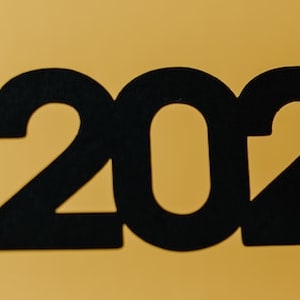see you later: Idiom Meaning and Origin
What does ‘see you later’ mean?
The idiom "see you later" is an informal way of saying goodbye or farewell to someone with the intention to meet again in the near future.

Idiom Explorer
The idiom "see you next Tuesday" is a euphemistic phrase commonly used to discreetly refer to someone as a derogatory term. It is a playful way of indirectly expressing frustration or annoyance towards someone without using explicit language.
The idiom "see things" means to perceive or experience something in a particular way, often different from reality. It implies a subjective understanding or interpretation of a situation or event.
The idiom "say goodbye" means to part or separate from someone or something, often permanently. It implies a finality or ending to a relationship, situation, or opportunity.
The idiom "ride off into the sunset" means to have a happy or satisfying ending or departure, often in a romantic or idealized way.
The idiom "pay a visit" means to go and see someone or something, usually for a short period of time, as a friendly or official visit.
The idiom "pay a visit" is a common expression in the English language, widely used in both spoken and written contexts. It has a straightforward and literal meaning, referring to the action of visiting or calling on someone.
The idiom "pardon me" is frequently used as a polite way to apologize or to request someone's attention or forgiveness.
The idiom "over and out" is used to indicate the end of a communication, especially in radio conversations. It is an informal way to say that you have finished speaking and are signing off.
The idiom "out of sight, out of mind" means that when something or someone is not visible or present, people tend to forget about it or them.
The idiom "only time will tell" suggests that the outcome or truth of a situation can only be known or understood in the future as events unfold.
The idiom "on end" means continuously or without interruption.
Decoding Farewell
The idiom "see you next Tuesday" is a variation of the common farewell "see you later." It is used in a more lighthearted or humorous manner and is often used among friends or close acquaintances. The addition of "next Tuesday" adds a specific future time frame to the farewell, suggesting a playful intention of meeting again in the near future.
Saying goodbye is a universal human experience, and there are many ways to bid farewell. One commonly used phrase is "say goodbye." This simple phrase is often used in formal or polite settings as a way to express well wishes and end a conversation on a positive note. While "see you later" implies a future meeting, "say goodbye" focuses more on the act of parting and expressing good wishes.
"long time no see" is another related idiom that is often used to greet someone after a long period of time without seeing each other. It can be seen as a casual and lighthearted way to acknowledge the passage of time and express surprise or delight at seeing the person again. While "see you later" implies a future meeting, "long time no see" focuses on the past absence and the joy of reuniting.
"pay a visit" is an idiom that is used to describe the act of visiting someone. It is often used to suggest taking the initiative to make a trip or journey to see someone. While "see you later" implies that the meeting will happen naturally or spontaneously, "pay a visit" emphasizes the intentional act of making the effort to see someone, usually in a more formal or planned manner.
Overall, the idiom "see you later" and its related expressions reflect the dynamic nature of human interaction and the various ways in which we express our farewells and intentions to meet again in the future. These idiomatic phrases add depth and nuance to our everyday conversations, helping to create meaningful connections and maintain relationships over time.
References:
- Example 1: HubSpot Article
- Example 2: Oxford Dictionary
Example usage
Examples of how the idiom "see you later" can be used in a sentence:
- Let's grab coffee tomorrow morning. See you later!
- It was great seeing you at the party. See you later!
- Do you need help with your project? I can come by after lunch. See you later!
More "Farewells" idioms

